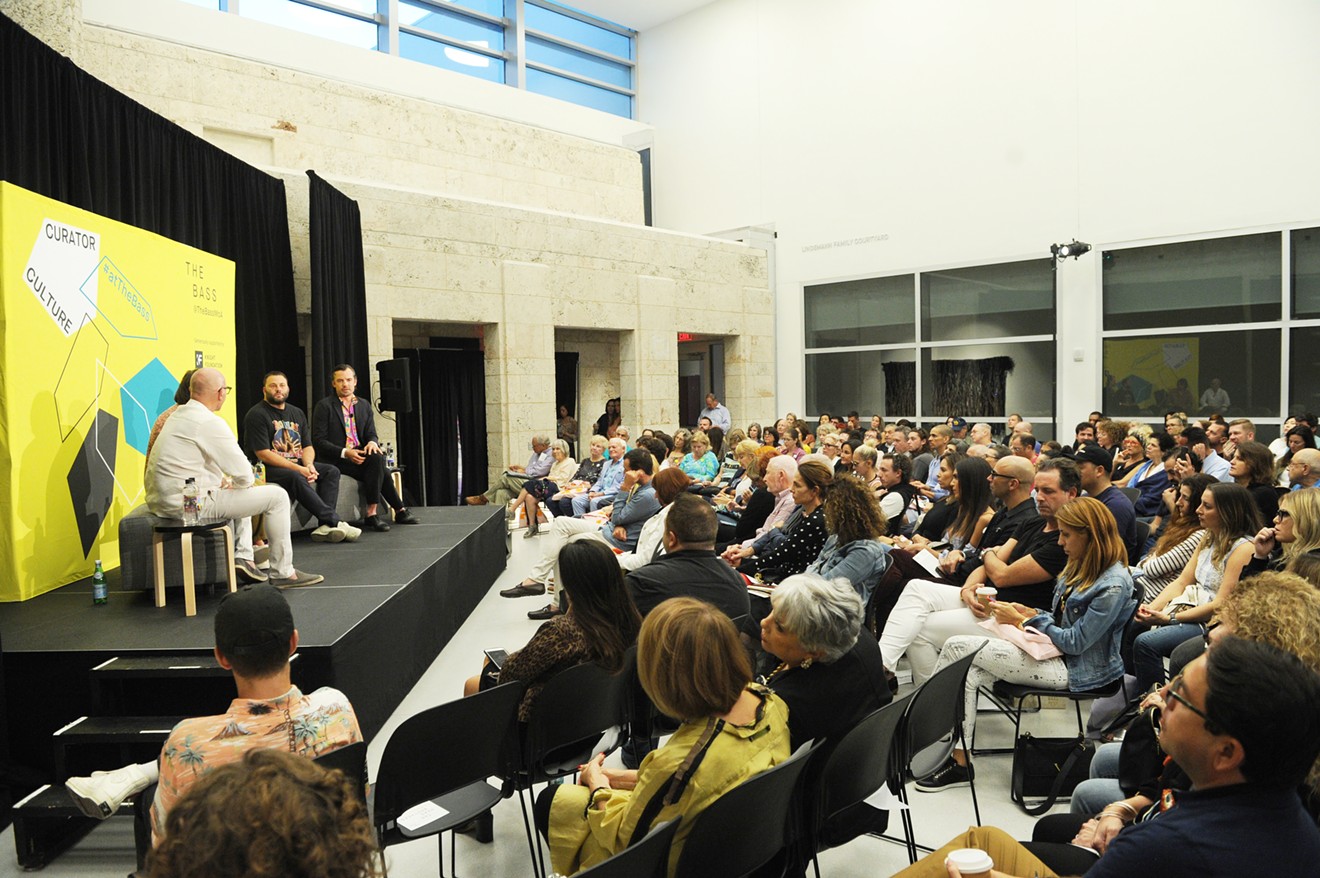It's the reality of these nonstop media machines that Healey hopes to address within a broader conversation about representation in art and politics at the next installment of Curator Culture at the Bass. The series, which kicked off with a conversation between Questlove and Pedro Reyes last April, seeks to resituate the role of the museum in communities.
"I think of the museum as a public forum as well as a place for art," reflects Healy. That means asking some fundamental questions like "What is their role in
His guests for the series' next installment on February 10 are New York Times columnist and frequent CNN and MSNBC commentator Charles M. Blow and Kimberly Drew, an art curator and social media guru who has managed the Instagram accounts of both the White House and the Metropolitan Museum of Art, and uses her personal Tumblr and Instagram to promote the works of black artists.
"Here are two people who are extraordinary storytellers and creative artists who are bringing urgent news of the politics and culture of our time," says Healy. "They are deeply involved and invested in those questions of who tells those stories."
Examining the role of representation is so often limited to
To spark conversation on this meld of individual and cultural representation, Healy is reaching back to the advent of a medium we seem to have quickly outpaced: analog photography. Back when the field was emerging, Frederick Douglass, the abolition activist and writer born into slavery, not only wrote extensively on photography's potential to transform racist attitudes but used his own images as a tool to represent dignified blackness in the post-Civil War United States.
"I thought an interesting way to enter a conversation with them was with Frederick Douglas. He realized that [photography] was a possible tool to change the representations of black people," says Healy. "He was deeply concerned about how the idea of new media could change both positively and negatively how people perceived others."
While focusing that far back in history might seem academic, it couldn't be more timely. As Healy puts it, people's representations of themselves are frequently becoming content for others' use. We need to learn how to reclaim our histories. Both Blow and Drew have extensive experience in this.
"When your history has been deliberately erased, censored, or deeply misrepresented, you’re going to be actively engaged in making sure the positive representations and the true history [are] going to be brought out," Healy explains. "Modern urban life and the development of corporate tech [have] kind of disenfranchised the voices of communities. Nowadays it seems like we can re-enfranchise people."
Curator Culture: Kimberly Drew and Charles Blow. 5 p.m. Sunday, February 10, at the Bass, 2100 Collins Ave., Miami Beach; 305-673-7530; thebass.org. Admission is free for members, $10 for nonmembers.












